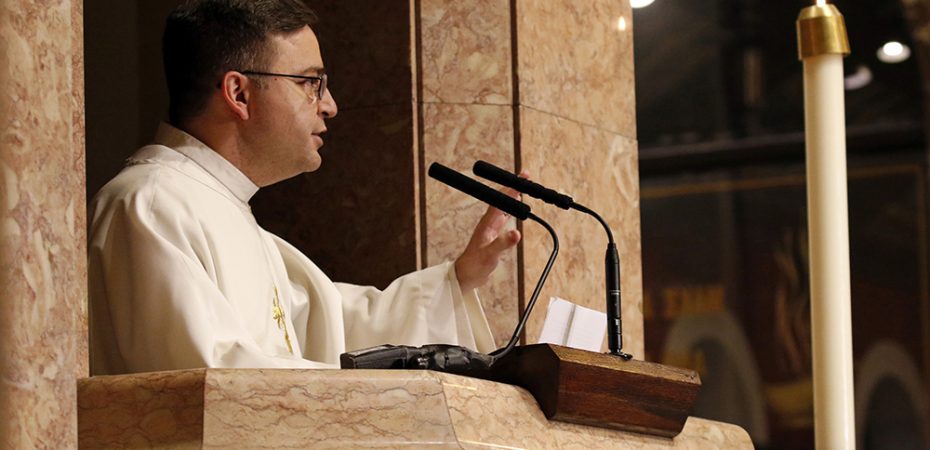Preaching too Much?
Teaching is unclear on how often a deacon should preach
Deacon Greg Kandra 4
Not long ago, a priest decided to stir the pot on social media by reminding his readers that deacons may preach, but they don’t have a right to preach. Say what?
Canon law explains: “Bishops have the right to preach the word of God everywhere … unless the local bishop has expressly forbidden it in particular cases. … Presbyters and deacons possess the faculty of preaching everywhere; this faculty is to be exercised with at least the presumed consent of the rector of the church” (Canons 763-64).
And the priest trotted out the appropriate citation from the General Instruction of the Roman Missal to underscore his point: “The homily should ordinarily be given by the priest celebrant himself or be entrusted by him to a concelebrating priest, or from time to time and, if appropriate, to the deacon” (No. 66).
As you can imagine, this drew some lively discussion, with most people heartily supporting the priest and thanking him for putting deacons in their place. Some added fuel to the fire, noting that, in their view, deacons preach too much, or too poorly, or just don’t add anything to the liturgy, so why do we even have them in the first place? Well. Let’s all take a deep breath.
While the Roman Missal does seem to prefer less diaconal preaching, canon law is a bit more elastic — basically stating that just one level of holy orders, bishop, has the right to preach. For everyone else, it is a faculty. But the Roman Missal does raise an interesting challenge: Just what is “from time to time,” and how do you define “appropriate”? Can a deacon preach too much? (Or, as I might put it, can you have too much of a good thing?)
When students have asked me about this, my standard response has been one word: depends. A lot depends on the skills of the deacon and the magnanimity of the pastor. As I often tell my homily students: Just because someone has the faculty to preach doesn’t mean that he should. (That goes for everyone — deacons, priests and bishops — by the way. Receiving the Sacrament of Holy Orders doesn’t automatically make you St. John Chrysostom.) Some do it better than others; some, worse.
It also depends on local needs. Sometimes a priest may have difficulty with the language; both he and the parish might appreciate someone else stepping in. And sometimes there might be medical issues where a priest might need a regular fill-in.
In my experience, healthy dialogue and collaboration are vitally important in the pastor-deacon relationship — and that includes the subject of preaching. If a pastor is dissatisfied with a deacon’s homilies, he needs to tell him. And the deacon needs to be willing to listen. And learn. And get a little help if necessary.
But if a deacon wants to preach and can do it effectively, but feels he isn’t being given opportunities, he should make it clear to his pastor that he has something worthwhile to say. And very often what he has to say will extend beyond the walls of the church — touching on aspects of family life, marriage, work and the larger world. Often, too, it will resonate powerfully with the people in the pews. At its best, diaconal preaching offers the faithful another viewpoint, another take on how to live the Gospel today.
Truth be told, the most powerful homily a deacon will ever give may not be delivered from the ambo. It will be delivered with his life. It will be articulated with the eloquence of a man in love with the People of God. Parishioners will observe how he serves, how he witnesses the Gospel, how he makes himself available to others, how he ministers to the poor or the neglected, how he washes the feet of his brothers and sisters in need.
That will be the deacon’s greatest homily.
And when he does step into the ambo, the homilies he delivers will be richer and more inspiring — not so much because of the words he chooses, but because of the life he lives.
DEACON GREG KANDRA is the creator of the popular blog The Deacon’s Bench at Patheos.com. A veteran journalist, he works as multimedia editor for Catholic Near East Welfare Association. He serves as a deacon in the Diocese of Brooklyn, New York.






Comments are closed.